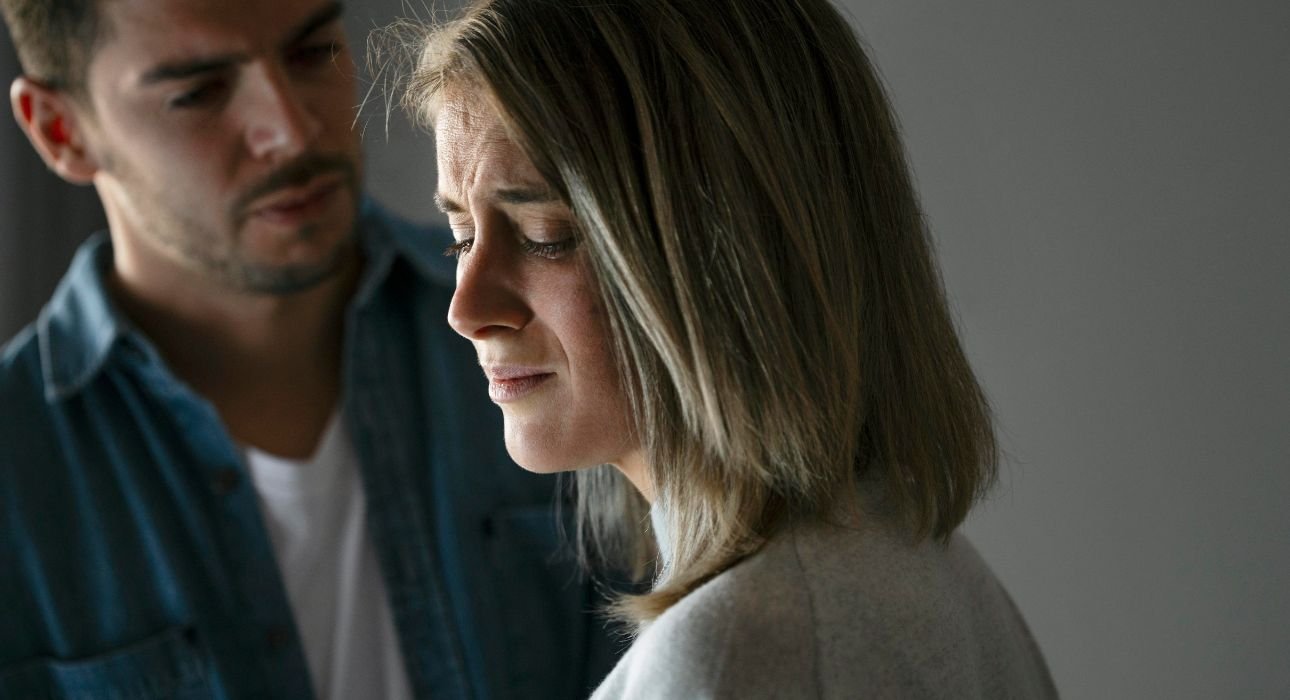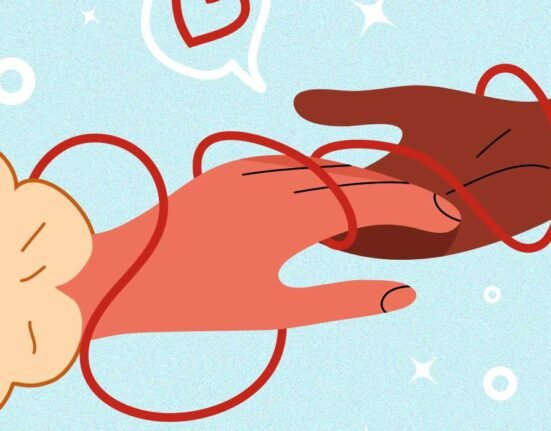Love is a complex, universal experience that is recognized across cultures. It can be patient, kind. It can be healing. Though, sometimes it may start to feel heavier later. Initially, things seem perfect and flawless; overly affectionate messages, continuous concern, quick attention, impulsive promises that feel like forever. And then the warmth of the bond may slowly turn into distance or confusion. Partners stuck in emotionally abusive relationships may not realise that they are being abused because there is no such involvement of (physical) violence. It is crucial to understand what emotional abuse or manipulation is and how it borrows the façade of love.
What is Emotional Abuse?
Emotional abuse can refer to patterns of behaviour or a form of manipulation. One person tries to assert control, belittle, demean or manipulate the other. Emotional manipulation is achieved by means such as emotional pressure, guilt-tripping, blackmailing, disrespect, passive-aggressive behaviour, and numerous other manipulative tactics.
Emotional manipulation tactics which can impact mental health include:
- Gaslighting: A form of psychological abuse where the partner is manipulated into questioning their own reality. It causes confusion, feelings of self-doubt, lowering self-esteem and sometimes; dependence on the gaslighter.
- Guilt tripping: It is a manipulative tactic where someone imposes guilt onto their partner. Individuals use guilt-inducing strategies to maintain relationship satisfaction, at the cost of their partner’s satisfaction.
- Isolation: According to research, romantic relationships can impact an individual’s social connections in considerably complex ways.
- Passive-aggressive behaviours: These behaviours (manifested into jealousy induction, spying or consistent conflicts) intend harm on one’s romantic partner through manipulative techniques or an attempt to damage the relationship.
So why does emotional abuse often feel like intense love?
One can misinterpret emotional abuse as a form of intense love. It can have multiple reasons. One includes attachment to their relationship, where an individual fails to recognise the absence of true love. Along with this, the unconscious patterns that appear from past relationships can make someone mistake emotional abuse for intense love.
An individual’s own temperament, personality disorders that stem from childhood such as abuse or neglect also contribute to the misinterpretation, which is generally linked with difficulty identifying the emotions. Another reason can be intermittent reinforcement, where an individual insults their partner or shows signs of abuse to their partner one moment. While, the next, they shower affection, creating confusion and attachment to the cycle
Trauma bonding, or forming emotional ties with the partner that caused emotional harm, creates a loop of that damage by providing comfort as well, making it harder for the individual to escape their relationship. Love and abuse often co-exist. The pain and shame of intimate abuse can leave deeper and lasting impacts on survivors.
Are you in an Emotionally Abusive Relationship?
- Need to keep the peace: you constantly find yourself walking on eggshells so you choose the words carefully, to avoid repetitive conflicts.
- Feeling of being controlled: You feel controlled to the point you’re unable to resist and break free, without any professional assistance.
- Repetitively apologising: Due to the blame shift, you apologise for everything. Even when the things or feelings are not under your control.
- Feeling of not being enough: Instead of feeling supported by your partner, you feel diminished and small. You feel insecure and unworthy.
- Doubting sanity: You ignore your partner’s wrong doings and blame you and your mind instead. You question your own judgements, instincts or even more, often as a result of being gaslighted.
- Being told you’re sensitive: You often feel invalidated. Your emotions are considered unreasonable and illogical. This can make you suppress your emotions to avoid rejection.
The Emotional Impact of Abuse
Emotional abuse can act as a significant predictor of emotional dysregulation and trauma symptoms. This, hence, can explain a connection between maltreatment and post-traumatic stress. It can further lead to increased depression, higher levels of anxiety and stress, along with neuroticism. It signifies that emotional abuse is as adverse as physical and/or sexual abuse.
Emotional abuse can destroy an individual’s self-identity and self-esteem, which can lead to insecure attachments and maladaptive patterns in future romantic or sometimes even non-romantic relationships. Such abuse is also associated with the development of eating disorders and reduced autobiographical memory specificity.
Emotional abuse is also associated with the onset and development of eating disorders. It is also linked with decreased specificity in autobiographical memory however familial or professional support can manage it.
Breaking the Cycle and Reclaiming Yourself
Individuals need to reframe their lives beyond the experience of abuse. Factors like emotional support, therapy, and having stable and supportive relationships can help break the cycle. Some of the ways in which one can encourage the process, but not limited to, are:
- Accept the existence: identify patterns and problematic behaviours through writing them down. Examine negative events that may not have seemed abusive immediately. Consider the accuracy of the perspective of your loved ones.
- The abuse is not your fault: Replace self-criticism with affirmations and don’t blame yourself. Self-blaming behaviours can make it hard and minimise your autonomy.
- No contact: Disrupt the cycle and avoid any communication. Establish a plan, only if an extent of contact is necessary.
- Professional assistance: Reach out to psychological services to work on setting boundaries and learn skills to build a self-care plan.
Love is complex, but it doesn’t bring sadness. It is a source of comfort as partners navigate the uncertainties together. Feeling constantly judged and degraded is not a good sign.
FAQs
1. What are the first signs of emotional abuse in a relationship?
Signs can include controlling behaviours, inducing guilt, isolation from friends or family and putting one’s needs down. Initially these behaviours appear to be gradual and can be romanticised as protectiveness.
2. Can emotional abuse happen in friendships or family relationships too?
Absolutely. It is not limited to only romantic partners. A person, whether it is a friend, parent or colleague can consistently manipulate, guilt trip or criticise you over and over.
3. Why do people stay in emotionally abusive relationships?
Factors like intermittent reinforcement, where an individual showers their partner with love, affection or gifts after insulting or engaging in a conflict with them. This creates a cycle of highs and lows and causes a loop of dependency and confusion.
4. Can someone emotionally abuse you without realizing it?
Definitely. Individuals sometimes tend to repeat harmful behaviours that they might have witnessed from their childhood or previous relations. They don’t understand the impact or harm it still can cause. It is important for them to take accountability and consider change.
References +
References +
- Burns, E. E., Jackson, J. L., & Harding, H. G. (2010). Child Maltreatment, emotion Regulation, and Posttraumatic stress: The Impact of Emotional abuse. Journal of Aggression Maltreatment & Trauma, 19(8), 801–819. https://doi.org/10.1080/10926771.2010.522947
- Celani, D.P. (1994). The illusion of love: why the battered woman returns to her abuser.
- Dye, H. L. (2019). Is emotional abuse as harmful as physical and/or sexual abuse? Journal of Child & Adolescent Trauma, 13(4), 399–407. https://doi.org/10.1007/s40653-019-00292-y
- Egeland, B., Jacobvitz, D., & Sroufe, L. A. (1988). Breaking the cycle of abuse. Child Development, 59(4), 1080–1088. https://doi.org/10.1111/j.1467-8624.1988.tb03260.x
- Fraser, H. (2008). In the name of love, women’s narratives of love and abuse.
- Goldsmith, R. E., & Freyd, J. J. (2005a). Awareness for emotional abuse. Journal of Emotional Abuse, 5(1), 95–123. https://doi.org/10.1300/j135v05n01_04
- Goodboy, A. K., & Bolkan, S. (2011). Attachment and the use of negative relational maintenance behaviors in romantic relationships. Communication Research Reports, 28(4), 327–336. https://doi.org/10.1080/08824096.2011.616244
- Gordon, S. (2024, September 10). Is someone gaslighting you? Look out for these red flags. Verywell Mind. https://www.verywellmind.com/is-someone-gaslighting-you-4147470
- Huey, C. W., Aziz, A. a. A., Hoesni, S. M., Razak, M. a. A., & Kamaluddin, M. R. (2021). Effects of Psychosocial Factors towards Emotional Abuse among University Students Who Have Been in Romantic Relationships. EDUCATUM Journal of Social Sciences, 7(2), 107–120. https://doi.org/10.37134/ejoss.vol7.2.10.2021
- Karandashev, V. (2015). A cultural perspective on romantic love. Online Readings in Psychology and Culture, 5(4). https://doi.org/10.9707/2307-0919.1135
- Kurniawan, L., & Limanta, L. S. (2021). Unwritten Scars: Gaslighting in relationships. K Ta Kita, 9(2), 253–258. https://doi.org/10.9744/katakita.9.2.253-258
- Leisring, P. A. (2012). Physical and emotional abuse in romantic relationships. Journal of Interpersonal Violence, 28(7), 1437–1454. https://doi.org/10.1177/0886260512468236
- Majdic, G. (2021). What is love? In Fascinating life sciences (pp. 193–198). https://doi.org/10.1007/978-3-030-67212-6_24
- Merritt‐Gray, M., & Wuest, J. (1995). Counteracting abuse and breaking free: The process of leaving revealed through women’s voices. Health Care for Women International, 16(5), 399–412. https://doi.org/10.1080/07399339509516194
- Raes, F., Hermans, D., Williams, J. M. G., & Eelen, P. (2005). Autobiographical memory specificity and emotional abuse. British Journal of Clinical Psychology, 44(1), 133–138. https://doi.org/10.1348/014466504×20080
- Raypole, C. (2025, January 28). How to recognize and break a trauma bond. Healthline. https://www.healthline.com/health/mental-health/trauma-bonding#faq
- Riggs, S. A. (2010). Childhood emotional abuse and the attachment system across the life cycle: what theory and research tell us. Journal of Aggression Maltreatment & Trauma, 19(1), 5–51. https://doi.org/10.1080/10926770903475968
- Rözer, J. J., Mollenhorst, G., & Volker, B. (2014). Romantic relationship formation, maintenance and changes in personal networks. Advances in Life Course Research, 23, 86–97. https://doi.org/10.1016/j.alcr.2014.12.001
- Sable, P. (1999). Almost all in the family. Journal of Emotional Abuse, 1(2), 51–67. https://doi.org/10.1300/j135v01n02_03
- Salihagić, D., & Tuce, Đ. (2023b). The other side of love: tactics of emotional manipulation in romantic relationships. DrušTvene I HumanističKe Studije, 8(3(24)), 609–628. https://doi.org/10.51558/2490-3647.2023.8.3.609
- Sengkey, M. M., & Illahibaccus-Sona, S. B. (2024). Psychological and behavioral impacts of early adult women victims of gaslighting behavior in romantic relationships. INSPIRA Indonesian Journal of Psychological Research, 5(1), 38–48. https://doi.org/10.32505/inspira.v5i1.7277
- Sieca, P. (2002). Love under the Sign of the Paradox: The Love Bond and Mistreatment.
- Smith, M., Nunley, B., & Martin, E. (2013). Intimate partner violence and the meaning of love. Issues in Mental Health Nursing, 34(6), 395–401. https://doi.org/10.3109/01612840.2012.762960
- Waller, G., Corstorphine, E., & Mountford, V. (2007). The role of Emotional Abuse in the Eating Disorders: Implications for treatment. Eating Disorders, 15(4), 317–331. https://doi.org/10.1080/10640260701454337













Leave feedback about this